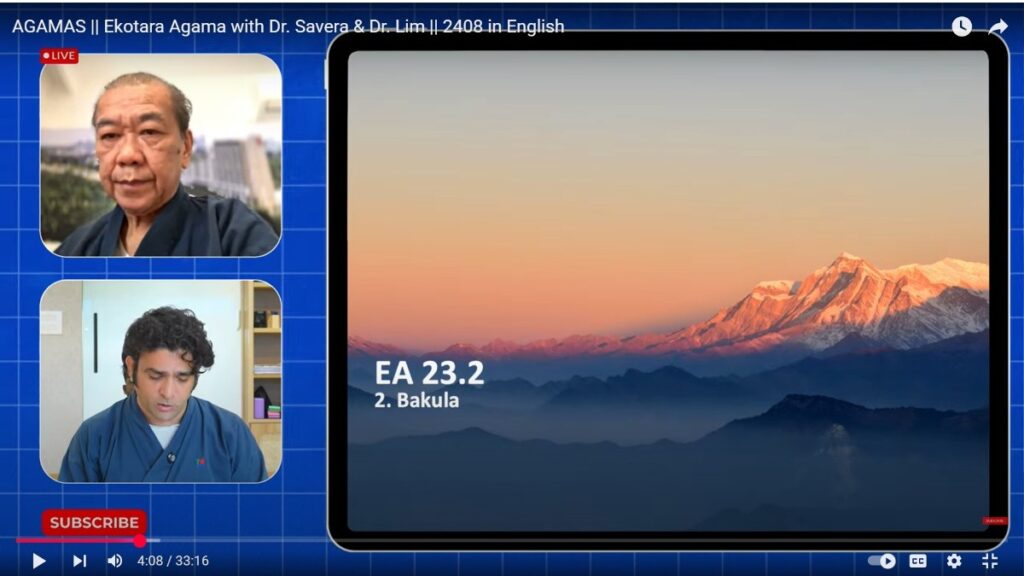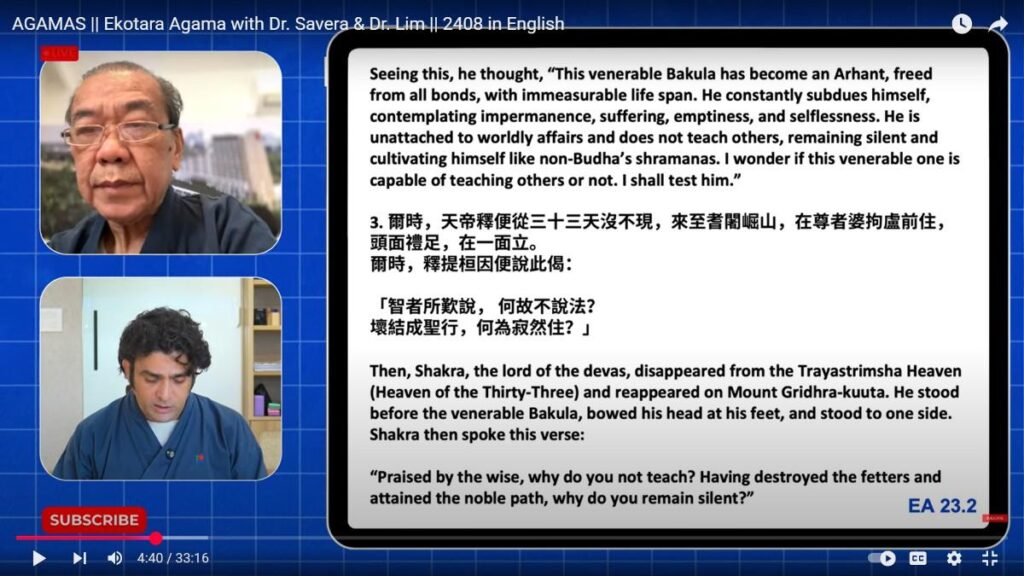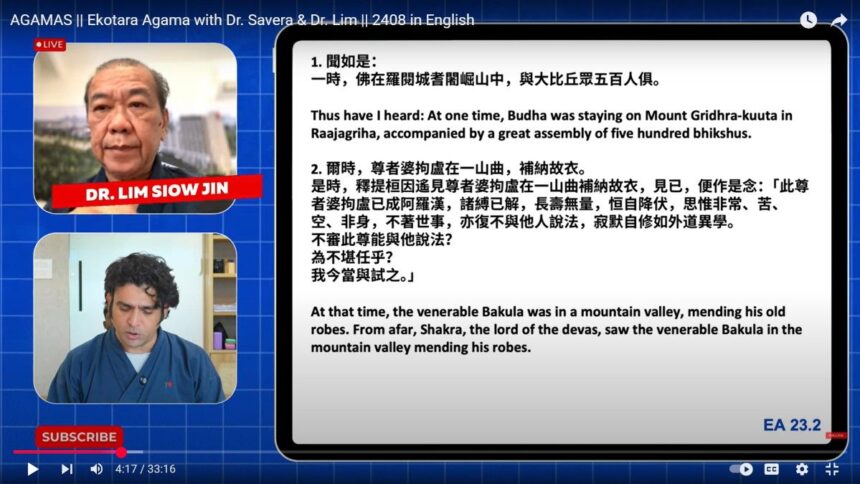Date: 24-08-2025
Location: Online Session
On August 24th, an enriching online session was held with Dr. Rajesh Savera and Datuk Lim Siow Jin, exploring a profound passage from the Ekottara Āgama (23.2). The discourse recounts a moment when the Buddha was residing at Mount Gridhar Kuta near Rājagṛha, accompanied by a large assembly of monks.
Nearby, in a secluded mountain valley, the venerable Bakula sat quietly, mending his robes in solitude. His calm presence reflected a deep realization—free from attachments, resting in the truth of impermanence, suffering, and selflessness.

Śakra’s Question
From the heavenly realms, Śakra, Lord of the Devas, observed Bakula’s serene composure. Perceiving his complete liberation and noble attainment, Śakra wondered why such a being remained silent, refraining from teaching others. Driven by curiosity and reverence, he descended to earth, approached Bakula respectfully, and posed a question in verse:
“Praised by the wise, why do you not teach?
Having broken all bonds and realized the noble path,
Why do you remain silent?”
This inquiry highlights a tension often discussed in spiritual traditions—the balance between personal realization and the responsibility of sharing wisdom with others.
The Role of Silence in Wisdom
Bakula’s silence was not emptiness or avoidance; it was the silence of completion. Having fully realized the Dhamma, his stillness expressed a maturity beyond the need for outward validation. In Buddhist thought, silence can sometimes teach more than words, pointing seekers inward rather than outward.
While many disciples of the Buddha spread the teachings widely, Bakula embodied the power of inner absorption—demonstrating that realization itself radiates presence, whether or not it is expressed in speech. His life illustrates that there are many ways of serving the Dhamma: through teaching, through compassionate action, and sometimes through the quiet strength of being.
Conclusion
The story of Bakula in Ekottara Āgama 23.2 invites us to reflect on the nature of wisdom, humility, and service. True realization does not always demand expression; sometimes silence itself communicates depth and freedom. Śakra’s question reminds us of the responsibility to share insight for the benefit of others, while Bakula’s silence shows that awakening is not bound by external forms. Together, they reveal a balance—between teaching and being, between speech and silence—that continues to inspire practitioners on the path today.

To watch full video click the link below
https://www.youtube.com/watch?v=7iI8A8-abzg&t=280s




